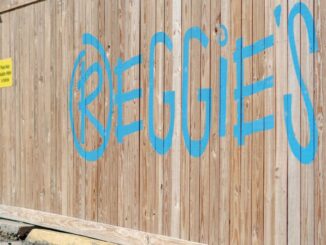A bill in the Legislature filed in response to the January death of LSU student Madison Brooks has been declared dead by its sponsor after it was deferred by a committee over concerns it would financially harm bars in Louisiana.
Sen. Beth Mizell, a Republican from Franklinton, had already amended Senate Bill 194 earlier this month to remove a section that would have barred people younger than 18 from entering bars altogether in hopes of gaining enough support to pass smaller sections of the bill she hoped would limit underage drinking.
Despite the resistance faced this session, Mizell and Brooks’ family said they are prepared to continue pushing for changes to state law.
“We just opened the door, and now that I’ve had this much pushback, we’re going to have to push harder on that door next year,” Mizell said Friday.
Mizell filed the bill this spring after Brooks’ death roiled LSU’s campus and spurred renewed attention to sexual assault against students.
Sheriff’s deputies said the 19-year-old Brooks met a group of three men — two of whom were underage — and a 17-year-old after a night of drinking at Reggie’s, a Tigerland bar, and asked them to drive her home. But the group stopped by the side of a road and one man and the juvenile raped her in the vehicle’s back seat, arrest documents say. Brooks was later struck by a car and killed after the group dropped her off in a neighborhood near campus, deputies said.
The state revoked the alcohol license for Reggie’s over the incident, essentially closing the bar permanently.
Brooks’ mother, Ashley Baustert, pleaded with members of the House of Representatives Judiciary Committee to approve the watered-down version of the bill before it was deferred Thursday by a 6-6 vote, guaranteeing it won’t be approved by the House before the end of the session.
“Our current system failed my daughter, which helped to facilitate her rape and ultimately cost her life,” Baustert said through tears. “The bars are not regulating underage drinking, and Madi’s case supports that.”
Bill already amended to gather support
The bill would have increased the consequences bar owners and employees face if an underage person is served alcohol at their business. Fines would have increased, and it would have created a clearer path for owners to be sued if someone is harmed as a result of underage drinking.
When first filed, the bill’s centerpiece was a ban on people younger than 18 from entering any bar in the state, or being employed as a server or bartender at one. Under current law, bars have the option to admit 18-, 19- and 20-year-olds, although those underage are still prohibited from purchasing or consuming alcohol.
Those sections were removed and the tougher penalties for bars were added in order to gather support in the Senate. The full Senate approved the bill 36 to 2 on May 15.
The “right of action” section of the bill took direct aim at Louisiana’s “anti-dramshop law” and was the section that drew the strongest opposition from legislators.
A vast majority of states have dramshop laws on the books that hold alcohol establishments liable for any harmful actions taken by their intoxicated customers, if the establishment serves negligently. Louisiana’s current law takes the opposite approach, stating that the consumption of alcohol, rather than its sale, is the “proximate cause” of any injury, death or property damage inflicted by an intoxicated person.
Mizell’s bill would have changed that law to create legal liability specifically for bars if a minor is served at their business and the intoxicated minor or a third party are harmed as a result. Businesses like corner stores, breweries and restaurants were not included in this section.
Legislators on the House committee and representatives from Fred’s Bar & Grill, a popular bar in Tigerland, said they were concerned that section of the bill would cause insurance premiums for bars to soar and drive many out of business.
“I’m a little concerned that we do risk insurance premiums spiking, so our mom-and-pop bars may be put in jeopardy if this is enacted,” said Rep. Jason Hughes, D-New Orleans.
Jason Nay, a part-owner and manager at Fred’s, said the bar’s lawyers expected their insurance company to drop them altogether if the bill became law.
Rep. Mandie Landry, D-New Orleans, said the extra layer of enforcement through litigation is unnecessary because the Louisiana Office of Alcohol and Tobacco Control already punishes bars caught serving underage people.
“Putting something in the law that is already required, I’m just not sure we need to go here if ATC is already supposed to be responsible for minors in bars,” Landry said.
The amendments also raised the fine schedule for bars caught serving alcohol to minors and require those bars to begin using an ATC-approved ID scanner. The bill also would have increased the penalties for someone caught using a fake ID.
The ID scanners are not perfect and still require a human to double-check an ID to make sure it’s not fake, Nay said. Also, if someone underage enters a bar using the legal ID of a person older than 21, a bar would be unable to prove they checked the ID of the underage person if they are later sued, Nay said.
Applying pressure for next session
Mizell expressed frustration with the arguments made by committee members that voted against the bill and criticized universities across the state for not throwing their support behind the bill.
“Universities are fully aware of the environment created around Tigerland and other bars near our state’s universities,” Mizell said. “I think the pressure needs to be applied to university administrations to take action.”
Educating fellow legislators on the topic ahead of next year’s session will be key to prepare the push to pass a new bill, Mizell said.
Kerry J. Miller, a New Orleans attorney representing Baustert, said the bill’s failure has not dampened her resolve to strengthen the state’s alcohol laws. Miller thanked Mizell for her continuing support and said the competing interests of public safety and economic incentives promise a difficult legislative fight next year.
“You’re not dealing with a super intelligent body, unfortunately,” Miller said. “You’re dealing with a legislative body that is motivated by special interests.”




Leave a Reply